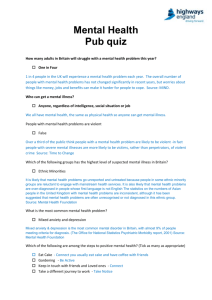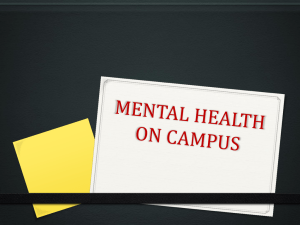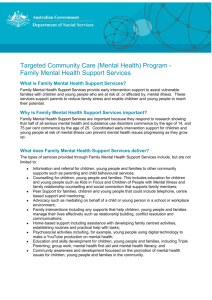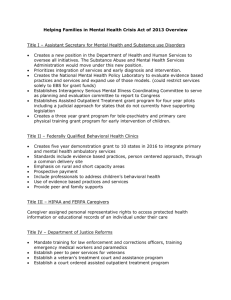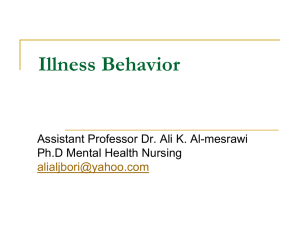Beds
advertisement
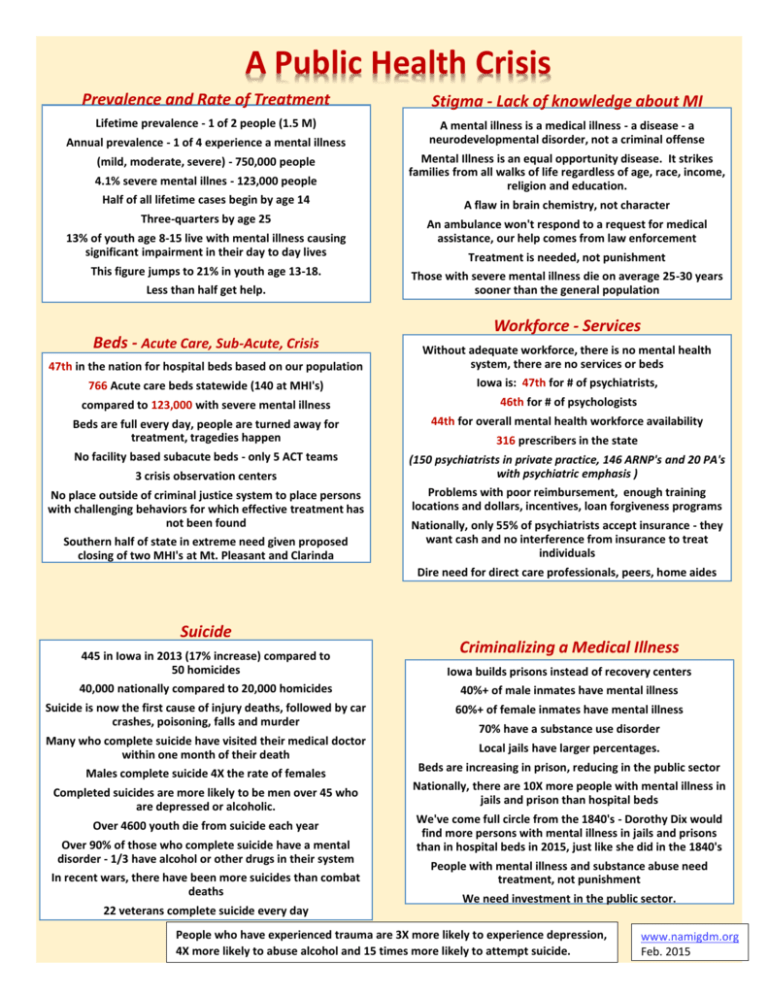
A Public Health Crisis Prevalence and Rate of Treatment Stigma - Lack of knowledge about MI Lifetime prevalence - 1 of 2 people (1.5 M) A mental illness is a medical illness - a disease - a neurodevelopmental disorder, not a criminal offense Annual prevalence - 1 of 4 experience a mental illness 4.1% severe mental illnes - 123,000 people Mental Illness is an equal opportunity disease. It strikes families from all walks of life regardless of age, race, income, religion and education. Half of all lifetime cases begin by age 14 A flaw in brain chemistry, not character Three-quarters by age 25 An ambulance won't respond to a request for medical assistance, our help comes from law enforcement (mild, moderate, severe) - 750,000 people 13% of youth age 8-15 live with mental illness causing significant impairment in their day to day lives This figure jumps to 21% in youth age 13-18. Less than half get help. Beds - Acute Care, Sub-Acute, Crisis Treatment is needed, not punishment Those with severe mental illness die on average 25-30 years sooner than the general population Workforce - Services 47th in the nation for hospital beds based on our population Without adequate workforce, there is no mental health system, there are no services or beds 766 Acute care beds statewide (140 at MHI's) Iowa is: 47th for # of psychiatrists, compared to 123,000 with severe mental illness 46th for # of psychologists Beds are full every day, people are turned away for treatment, tragedies happen 44th for overall mental health workforce availability No facility based subacute beds - only 5 ACT teams (150 psychiatrists in private practice, 146 ARNP's and 20 PA's with psychiatric emphasis ) 3 crisis observation centers No place outside of criminal justice system to place persons with challenging behaviors for which effective treatment has not been found Southern half of state in extreme need given proposed closing of two MHI's at Mt. Pleasant and Clarinda 316 prescribers in the state Problems with poor reimbursement, enough training locations and dollars, incentives, loan forgiveness programs Nationally, only 55% of psychiatrists accept insurance - they want cash and no interference from insurance to treat individuals Dire need for direct care professionals, peers, home aides Suicide Criminalizing a Medical Illness 445 in Iowa in 2013 (17% increase) compared to 50 homicides Iowa builds prisons instead of recovery centers 40,000 nationally compared to 20,000 homicides 40%+ of male inmates have mental illness Suicide is now the first cause of injury deaths, followed by car crashes, poisoning, falls and murder 60%+ of female inmates have mental illness Many who complete suicide have visited their medical doctor within one month of their death Local jails have larger percentages. Males complete suicide 4X the rate of females Completed suicides are more likely to be men over 45 who are depressed or alcoholic. Over 4600 youth die from suicide each year Over 90% of those who complete suicide have a mental disorder - 1/3 have alcohol or other drugs in their system In recent wars, there have been more suicides than combat deaths 22 veterans complete suicide every day 70% have a substance use disorder Beds are increasing in prison, reducing in the public sector Nationally, there are 10X more people with mental illness in jails and prison than hospital beds We've come full circle from the 1840's - Dorothy Dix would find more persons with mental illness in jails and prisons than in hospital beds in 2015, just like she did in the 1840's People with mental illness and substance abuse need treatment, not punishment We need investment in the public sector. People who have experienced trauma are 3X more likely to experience depression, 4X more likely to abuse alcohol and 15 times more likely to attempt suicide. www.namigdm.org Feb. 2015

